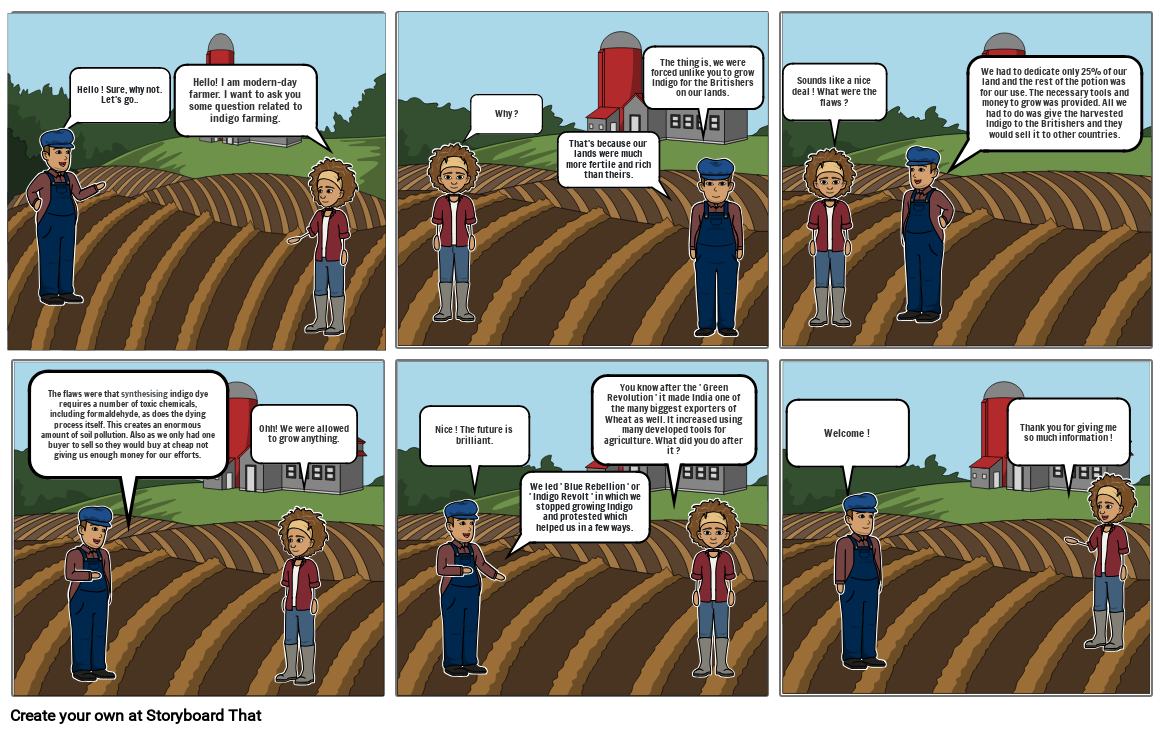set pbl

Storyboard-Text
- Gleiten: 1
- Hello! I am modern-day farmer. I want to ask you some question related to indigo farming.
- Hello ! Sure, why not. Let's go..
- Gleiten: 2
- The thing is, we were forced unlike you to grow Indigo for the Britishers on our lands.
- Why ?
- That's because our lands were much more fertile and rich than theirs.
- Gleiten: 3
- We had to dedicate only 25% of our land and the rest of the potion was for our use. The necessary tools and money to grow was provided. All we had to do was give the harvested Indigo to the Britishers and they would sell it to other countries.
- Sounds like a nice deal ! What were the flaws ?
- Gleiten: 4
- The flaws were that synthesising indigo dye requires a number of toxic chemicals, including formaldehyde, as does the dying process itself. This creates an enormous amount of soil pollution. Also as we only had one buyer to sell so they would buy at cheap not giving us enough money for our efforts.
- Ohh! We were allowed to grow anything.
- Gleiten: 5
- You know after the ' Green Revolution ' it made India one of the many biggest exporters of Wheat as well. It increased using many developed tools for agriculture. What did you do after it ?
- Nice ! The future is brilliant.
- We led ' Blue Rebellion ' or ' Indigo Revolt ' in which we stopped growing Indigo and protested which helped us in a few ways.
- Gleiten: 6
- Thank you for giving me so much information !
- Welcome !
Über 30 Millionen erstellte Storyboards
Keine Downloads, Keine Kreditkarte und Kein Login zum Ausprobieren Erforderlich!

